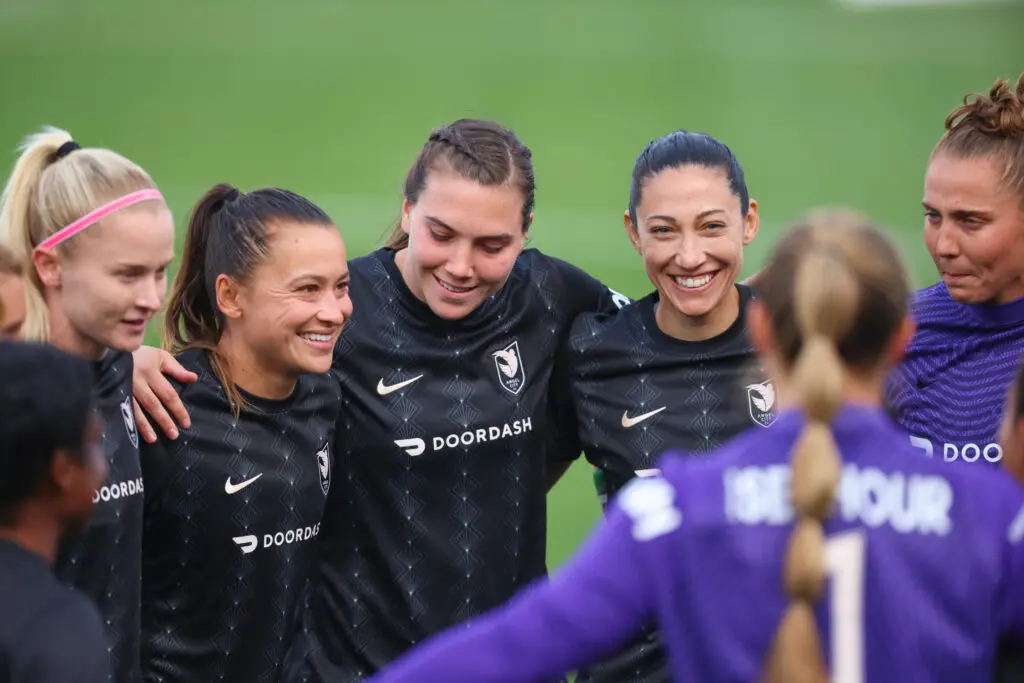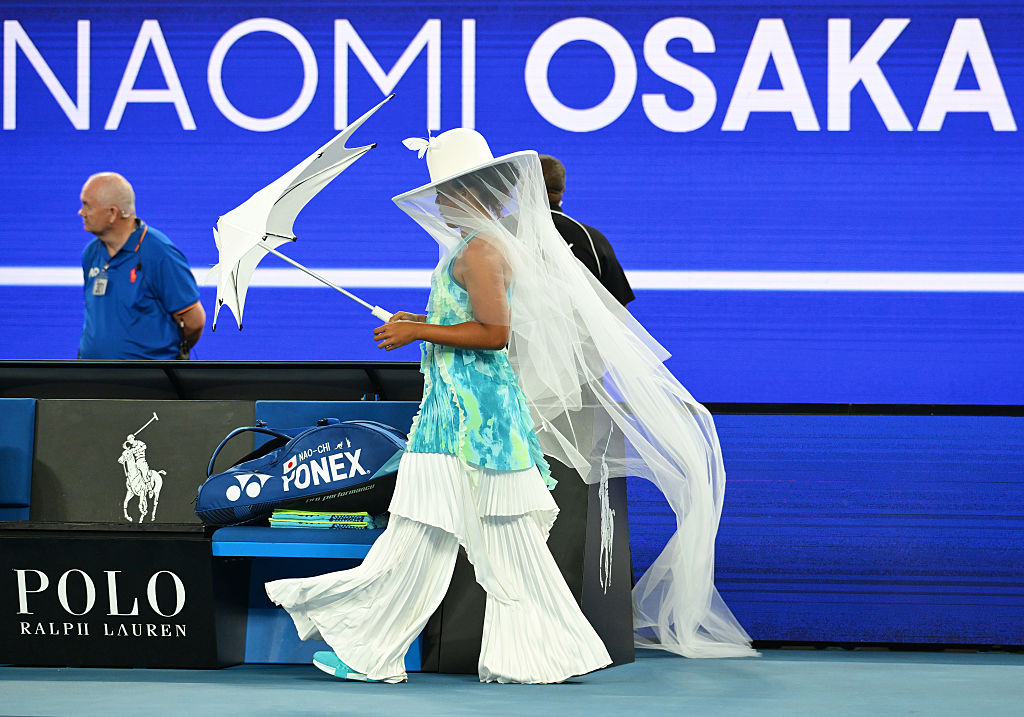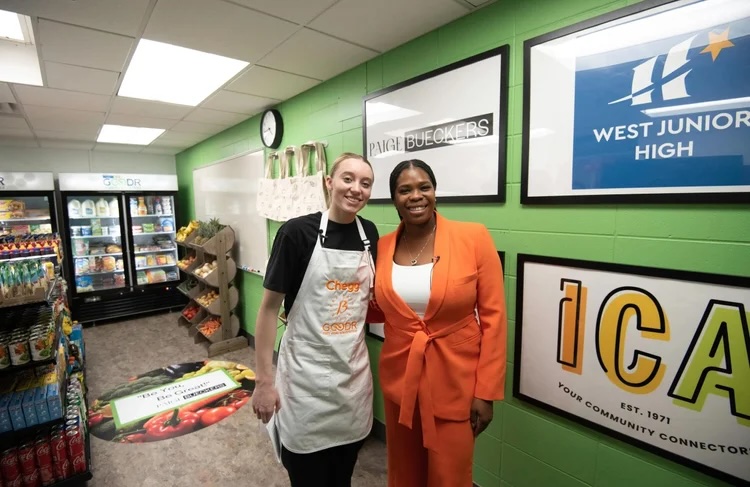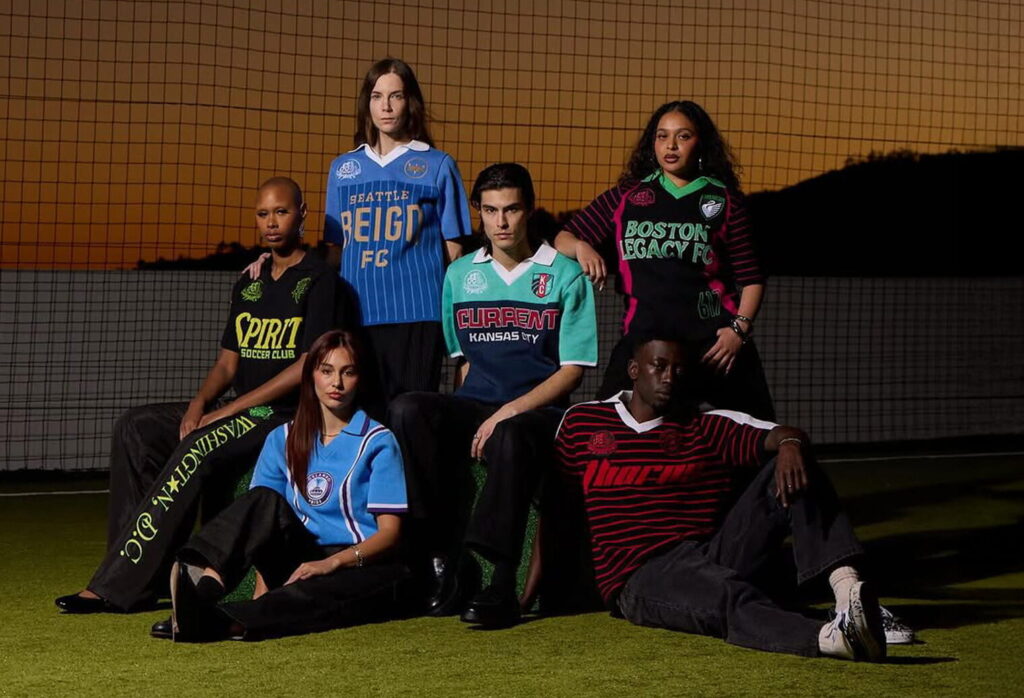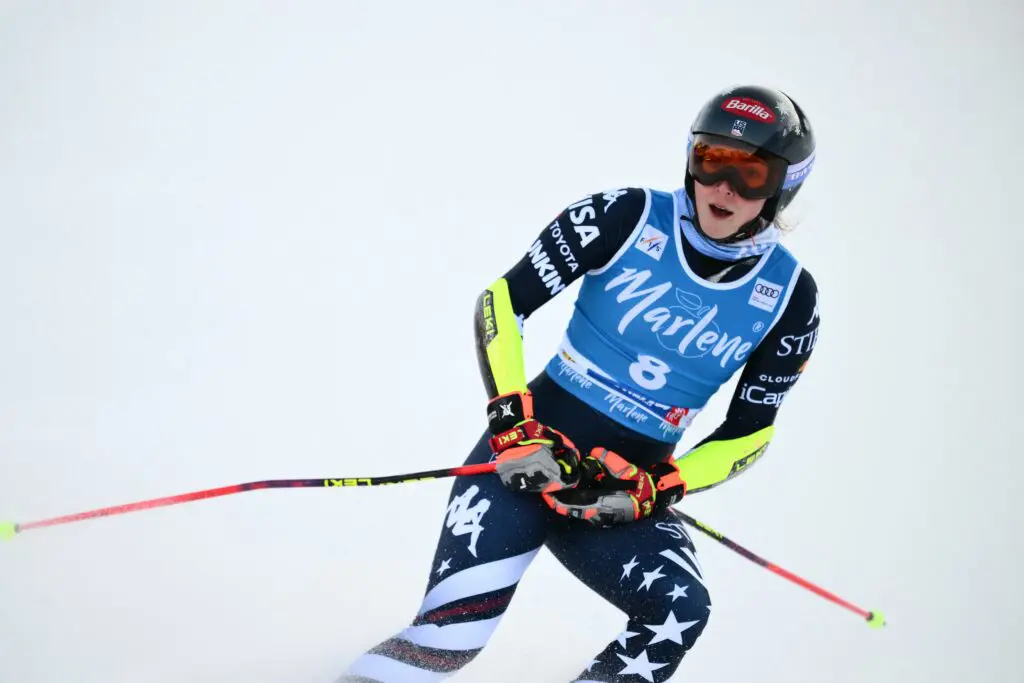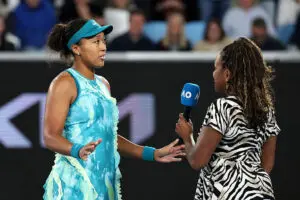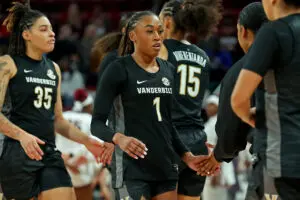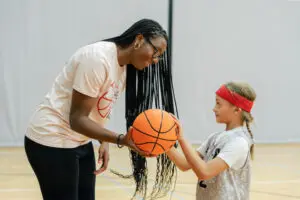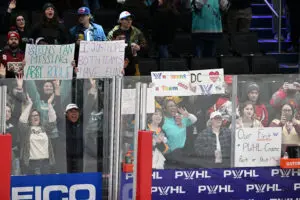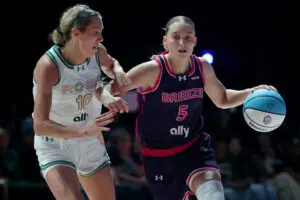Around June of last year, Angel City FC’s Head of Community Catherine Dávila called up Lily Barrett-O’Keefe, executive director of Common Goal.
The two had worked together when Angel City helped launch the Anti-Racist Project in February, and Dávila had an idea to build off of that initiative.
“LGBTQ+ issues and inclusion are at the center of everything the NWSL does and is,” she said to Barrett-O’Keefe. “We should do a project like the Anti-Racist Project but with LGBTQ+ issues.”
Homophobia has been a prevalent issue in men’s and women’s soccer around the globe, while anti-LGBTQ+ and anti-trans legislation sweeps across the United States. The Major League Soccer-Liga MX All-Star Game last August was halted due to homophobic chants from the crowd. Recently in the NWSL, the Orlando Pride apologized in a joint statement with the Black Swans supporters’ group for asking the group to take down a banner that read “GAY” in accordance with signage policies. The North Carolina Courage faced backlash from fans in December after signing Jaelene Daniels, a formerly retired U.S. women’s national team player who has spoken out against gay marriage and refused to wear the USWNT’s Pride jersey.
Coming out of her conversation with Dávila, Barrett-O’Keefe was all in. She proceeded to bring the idea to life with the help of Common Goal, a global social impact collective.
Dávila called the San Diego Wave FC, who were also eager to get involved, and the Wave then recruited clubs from the other major professional soccer leagues in the U.S., Canada and Mexico: Tigres UANL, Chicago Fire FC, Oakland Roots, Pacific FC, Philadelphia Union and San Diego Loyal SC.
Ahead of hosting the 2026 FIFA World Cup, the clubs came together to launch a 12-month program for stakeholders that includes over 100 hours of LGBTQ+ inclusion training led by the Common Goal project, Play Proud and its partners — Inside Inclusion, Impact International and Stonewall UK. Included in each club’s delegation are a leader of their supporters’ group and a community-based coach from their city.
Angel City hosted the first five-day residential event in Los Angeles last week.
“We went into it saying Pride, LGBTQ+ inclusion and issues and conversations and voices are not just June, and especially when we’re Angel City and especially when we’re in women’s soccer,” Dávila said. “This is year-round for us.”
Angel City plans to develop club policies for the season based on what they learn in the workshops, which will then translate into a long-term strategy of inclusivity. Until the second residential event in December, hosted by Tigres, the clubs that attended the event in L.A. have an accountability system in place. They also have the opportunity to schedule ongoing meetings with Play Proud’s experts, which Dávila hopes Angel City holds on a weekly or bi-weekly basis.
Thank you @CommonGoalOrg @stonewalluk @IMPACTIntl and @weareangelcity for the Play Proud residency program for this incredible group of people who will end homophobia in North American soccer. ❤️🧡💛💚💙💜 pic.twitter.com/KaB2uvUDzp
— Nichole Peterson (@nicholepeterson) April 14, 2022
Angel City players could sit in on the Play Proud workshops last week if they wished. Defender Paige Nielsen only planned to be there for the morning, but when noon hit, she asked if she could stay for the rest of the day.
Nielsen didn’t know anyone in the room except teammate Madison Hammond, but she felt like she did because of the way everyone empowered each other with their personal stories and moments of vulnerability.
“We don’t have that many safe spaces anymore,” she said. “People call you out all the time, whether that’s online, in school. There’s Don’t Say Gay bills. You can’t talk about things. And this is a safe room.”
Nielsen recalled the instructor using a saying about calling people “in” instead of “out,” emphasizing how to react to issues in a way that’s educational and positive.
A quote that Nielsen and Dávila reflected on was: “The standard you walk past is the standard you accept.”
“That really hit home for me because I’m such a hippie and I’m like, ‘No words or anything will bother me. I know my worth.’ But that comes from a place of privilege,” Nielsen said. “The more conferences and the more things we learn about how much you are privileged versus a lot of people, it makes me want to do a lot more and help others.”
In one of the many ways privilege was demonstrated throughout the week, the instructor set up four different rows of chairs with four people in each row. The leader of the session put a trash bin in front of the first row. Everyone had 10 seconds to get their crumpled piece of paper into the bin.
As papers flew overhead, the people in front of the bin simply reached out and placed theirs in. One person in the back row made their shot. The woman next to him gave up because she couldn’t even see the bin; she just believed it existed. Meant to reflect privileged people in society, the participants in the front row of seats had the advantage over people in the back, who could only take a chance with their throw and hope for the best.
Check out @CommonGoalOrg’s new Play Proud merch! It’s Augment Reality (AR)-activated merchandise that links fans to inspiring, bilingual storytelling about the topic of LGBTQIA+ inclusion in soccer 🏳️🌈🏳️⚧️⚽️⬇️ https://t.co/M3pxjPVqw4 pic.twitter.com/fOVeXlAIBE
— Kai (@hiyakaiya) April 12, 2022
Every conversation Angel City has this season will have been touched by Play Proud. The goal is to make the learnings feel so routine that they won’t need to be reactive when new issues arise, internally or externally.
“If we’re going to take a stand on inclusivity, on diversity, on the importance of these things, not just morally but to our businesses, we have to be OK talking about them,” Dávila said. “We have to be excited talking about them.”
Since the beginning of preseason in February, Angel City players have been vocal about how much they appreciate playing for a club that aligns with their values of inclusivity, equality and empowerment. ACFC’s efforts to put the LGBTQ+ community front and center is just another step in that direction.
“It gets me excited because I’m around amazing people, amazing staff who want to do something bigger than just play a sport,” Nielsen said. “They want to use the sport as an avenue to help kids, inspire others.”
Jessa Braun is a contributing writer at Just Women’s Sports covering the NWSL and USWNT. Follow her on Twitter @jessabraun.
